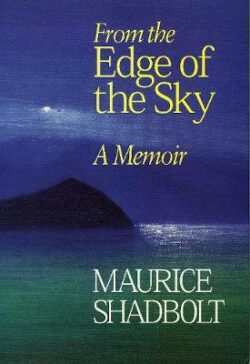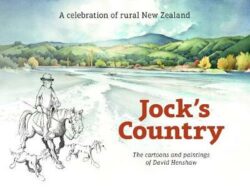Wrestling with God
$39.99
Available
Description
Lloyd Geering is one of New Zealand's foremost thinkers, a man of clarity and vision who continues to present new and challenging ideas about the spiritual life of the culture he lives in. His life almost spans the twentieth century, and his stories of growing up in the Depression, cycling trips around the country, and a lively but impoverished student life all embellish the historical record of that time. Embarking on life as a newly-wed young minister, he was left suddenly bereft by his wife's death; he writes movingly of his work as a solitary young father, caring for two small children with the support of his Dunedin parishioners. Later, he became a university teacher, first at Knox College in Dunedin, then at Victoria University in Wellington. His second marriage, and the birth of a third child, brought much happiness that forms a backdrop to the public life. This became increasingly controversial as Geering wrote about his changing views of Christianity through the 1960s and 1970s. Joining radical theologicals like Bishop Robinson and John Spong, he became an innovative and challenging voice in the emerging debates about God and religion.
His 1966 article 'What Does the Resurrection Mean?' (included in the autobiography) led to the famed heresy trial in 1967. Found innocent, Geering became the foundation professor of religion at Victoria University, and continued a highly successful career as an academic and writer. His first book (God in the New World, 1968) was a bestseller in both Australia and New Zealand, and five later titles have earned him acclaim in many parts of the world. Wrestling with God places personal, emotional and intellectual challenges against the backdrop of a significant academic and theological career. Lloyd Geering's re-imagining of the religious dimensions of human life required not only the brilliance that impressed his peers from the beginning, but the uncompromising intellectual honesty that later nettled lesser and more timid spirits. A deep and abiding concern for others led this former mathematics student into the ministry; a rigorous commitment to truth has made him one of the preeminent theologians of our time.
Today, Lloyd Geering writes compellingly about the spiritual life of Western culture in the early twentieth century, and the centrality of human relationship with an endangered planet. But his story follows the path also of the radical changes taking place within the post-Christian Western culture into which he was born. Perhaps of greatest significance within the changing character of Western culture has been the changing concept of God. Wrestling With God is a reflective and honest account of one man's personal journey, which is set alongside the momentous changes to Western culture and thought during the twentieth century.
Additional information
| Weight | 670 g |
|---|---|
| Dimensions | 150 × 220 mm |
| ISBN | 9781877242366 |
| Dimensions | 150 x 220 mm |
| Book Type | Paperback / softback |
| Author | Lloyd Geering |
| Author Bio | |
| Number of Pages | 230 |




